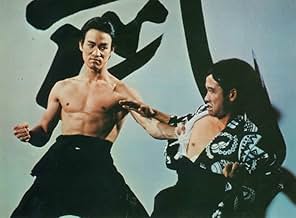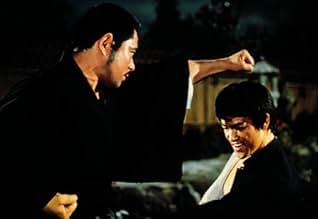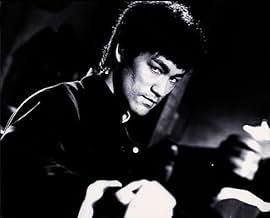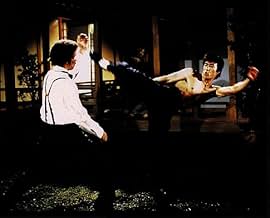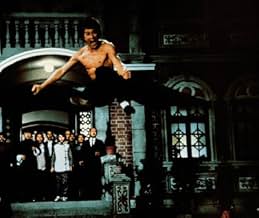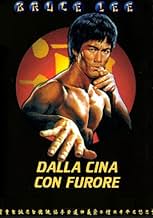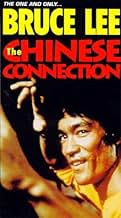During the Japanese occupation of Shanghai, the star pupil of a recently-deceased martial arts teacher battles a Japanese dojo which seeks the demise of his master's fighting school.During the Japanese occupation of Shanghai, the star pupil of a recently-deceased martial arts teacher battles a Japanese dojo which seeks the demise of his master's fighting school.During the Japanese occupation of Shanghai, the star pupil of a recently-deceased martial arts teacher battles a Japanese dojo which seeks the demise of his master's fighting school.
- Awards
- 2 wins & 1 nomination
Nora Miao
- Yuan Le-erh
- (as Miao Ker Hsiu)
Chikara Hashimoto
- Hiroshi Suzuki
- (as Riki Hashimoto)
Ying-Chi Li
- Li
- (as Yin Chi Lee)
- Director
- Writer
- All cast & crew
- Production, box office & more at IMDbPro
Storyline
Did you know
- TriviaJackie Chan doubled for Chikara Hashimoto for the scene where Chen kicks him out of the window. He took the kick and flew several feet. Bruce Lee immediately checked to see if he was okay. Chan played a guard Lee kills in Long Tranh Hổ Đấu (1973).
- GoofsWhen Bruce is spinning the two Bushido students in the Bushido school, they are clearly two lightweight dummies.
- Alternate versionsFor its original 1972 UK cinema release the BBFC requested a cut to remove a shot of a flying throat kick, though it appeared intact in all early theatrical prints and was possibly waived before release. In 1978 the film was withdrawn by BBFC director James Ferman (together with Long Tranh Hổ Đấu (1973)) and all nunchaku footage removed together with the previously mentioned throat kick, and these cuts, (totalling 2 mins 51 secs) would persist in all of the film's UK video releases. The cuts were fully restored for the 2001 Hong Kong Legends release.
- ConnectionsEdited into Tử Vong Du Hý (1978)
- SoundtracksAtmospheres
Written by György Ligeti
Performed by Das Orchester des Südwestfunks Baden-Baden
Courtesy of MGM Records
Brief excerpt, played twice, during dramatic death scenes
Featured review
From start to finish, the Chinese Connection (originally released as Fists of Fury) is probably the most entertaining and satisfying of all the Bruce Lee movies. Well paced, with creative and fairly realistic fight scenes distributed evenly, the movie keeps the audience's attention all the way through the long fight scene near the climactic end (I won't spoil the actual ending for you). The predictable revenge plot provides the emotional trigger to release Lee's rage-filled fights and his now-famous smashing of the "No Dogs or Chinese Allowed" sign. Equally famous is his "this time you eat paper, next time you eat glass" line. Viewers are also treated to the only on-screen kiss by Lee, some comical moments with Lee playing a bumbling telephone repairman, a cameo by director Lo-Wei as the chief inspector, and a soundtrack which effectively builds tension in the fight scenes. You won't recognize Jackie Chan as the stuntman for one of the Japanese martial artists who flies through the screen door. The most memorable part of this movie is Lee's dynamic vitality as he goes about his business, cocksure and confident, and with the goods to back it up. I am forever grateful to those who, in marketing this movie to the west, decided to dub only the dialogue and to leave Lee's original fight sounds untouched. As is evident in the US version of Return of the Dragon (aka Way of the Dragon), dubbing Lee's fight sounds is nothing short of a sin.
Details
Box office
- Budget
- $100,000 (estimated)
- Runtime1 hour 46 minutes
- Sound mix
- Aspect ratio
- 2.35 : 1
Contribute to this page
Suggest an edit or add missing content






